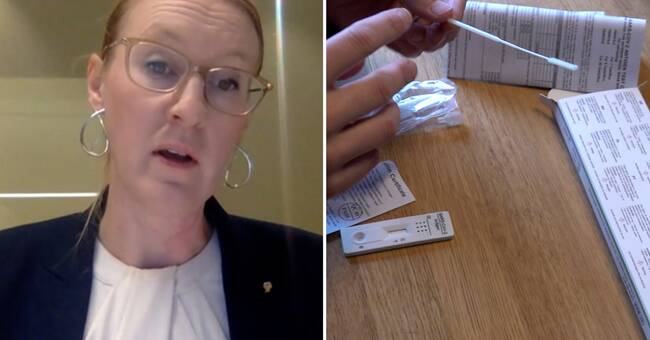The Swedish Public Health Agency has just backed down from the decision to scale down sampling in Sweden.
From 22 November, according to the announcement, vaccinated people will once again be offered free testing for symptoms.
But just a few weeks ago, on 31 October, the government decided that from 1 April 2022, the Swedish Public Health Agency will no longer be responsible for ensuring that there is sufficient sampling capacity.
The decision has been signed by Minister of Social Affairs Lena Hallengren (S).
In an email to SVT, Lena Hallengren's press secretary writes that: “From 1 April 2022, the government assesses that the regions can provide test capacity that corresponds to the need that the Public Health Agency forecasts.
The fact that the regions provide test capacity according to forecasted needs is in accordance with the ordinary responsibility incumbent on the regions. "
Decisions worry municipalities and regions
The decision worries Sweden's municipalities and regions, SKR, as it is uncertain whether the regions will have time to build up their own capacity in time.
- It is now important that the regions can quickly ensure that they have their own capacity before the Public Health Agency's assignment ends.
We would have liked the Swedish Public Health Agency to have been given an extended assignment until at least the end of the first half of the year, says R.
Today, FHM is responsible for ensuring that Sweden can maintain large-scale testing throughout 2021. It is about the authority ensuring that each region has sufficient test capacity to be able to continue sampling for covid-19 at the required rate.
"Extensive testing conducted"
The regions are thus primarily responsible for sampling.
But in cases where the regions are not able to test on their own, FHM has ensured that there are, for example, labs in and outside Sweden that can help analyze the PCR samples.
- It is an extremely extensive testing that we have conducted and still conduct when it comes to covid-19.
Many regions have used this to be able to test as widely as they have wanted in Sweden.
Now that it is being phased out, it means that the regions must either establish their own capacity or procure from someone else, says Emma Spak.

